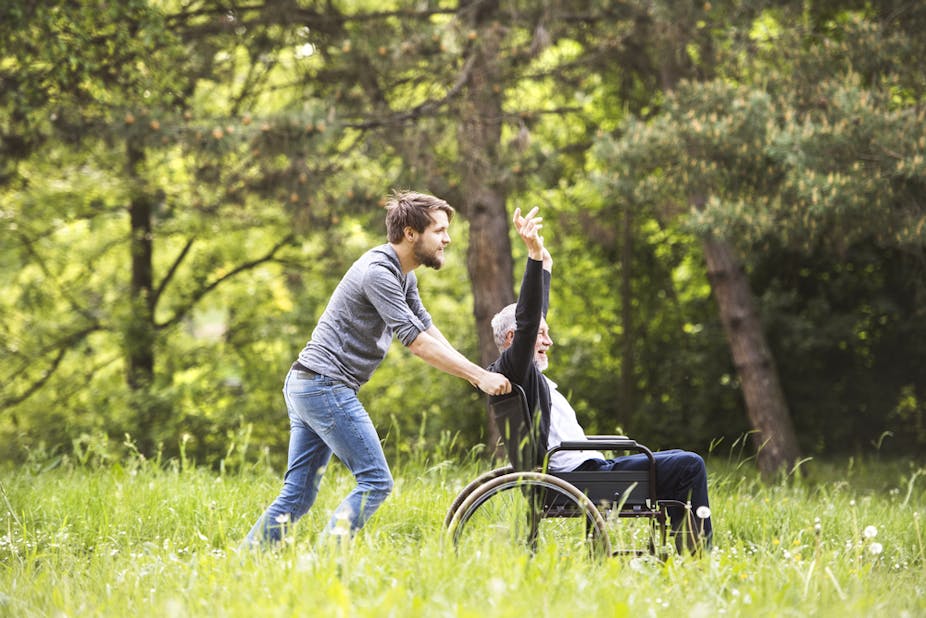The word’s population of elderly people – aged 70 or over – is expected to increase sharply in the coming decades. Many of these people will need some kind of care – and much of that care will come from family members who already have time-consuming jobs.
Studies show that caregiving is widely considered to be a mentally and physically taxing activity. It takes time, energy and focus. It can also have a negative effect on a person’s approach to their paid work, with a detrimental impact on performance and commitment. At the moment as many as one in nine workers in England and Wales also look after someone who is frail or disabled.
So how can we – and the places where we work – transform this perception of caregiving into a positive, psychologically fulfilling and motivating experience?
To begin with, governments need to take measures to support caregiving as a personally meaningful responsibility. After all, looking after children is tiring and draining – but employers are legally required to make provisions for this kind of care. Why not do the same when it comes to looking after people at the end of their lives?
Secondly, as members of society we all need to look at elderly caregiving from a rather brighter perspective. Research has found that improved resources in the workplace provided to employees with elderly relatives to care for – money for training or staff relief, rewards, extra time – could reduce the negative impact and its effect on performance.
Bu negative associations between the demands of elderly care and work become insignificant when those carers are happy with their responsibilities. When they find the caregiving enjoyable and worthwhile, rather than draining and thankless.
Psychologists have looked into this idea in El Salvador – a country where close family ties and taking care of elderly relatives is considered socially important. They found that managers who are caregivers themselves are best placed to empathise with the needs of their employees. As a result, they are perhaps more likely to provide flexible working for those with care responsibilities at home. A work culture which is supportive of family life helps to make the caregiving experience a positive one.
Another study of carers for the elderly who work in the finance and services industries in South America (managers and junior staff) found that providing care can be personally satisfying – with a positive impact on their overall well being and approach to work. Supportive behaviours for employees included providing flexible work schedules, listening to them and jointly coming up with creative solutions for any work-family conflicts.
Supporting subordinates
The study also found that junior staff who worked under supervisors who had similar responsibilities at home were likely to perceive their own caregiving experiences as personally meaningful. They also spoke of doing better at work.
Important practical implications and messages can be taken from this research, which highlights the positive side of caregiving. Better resources for providing support would be one important take away for managers. Likewise, appropriate training should be provided so that managers feel better equipped and more confident of their ability to understand the lives of their staff. They will then be better able to create a family-friendly work culture – and in turn create and maintain a cohesive team who are happier in their non-work lives.
Caring can be among the most challenging of family responsibilities – it is physically and emotionally taxing. But it can also generate personal skills such as empathy and perspective, which can all be positively applied to work – and benefit employers. Organisations should adopt and encourage work place measures that are supportive of caring responsibilities.

